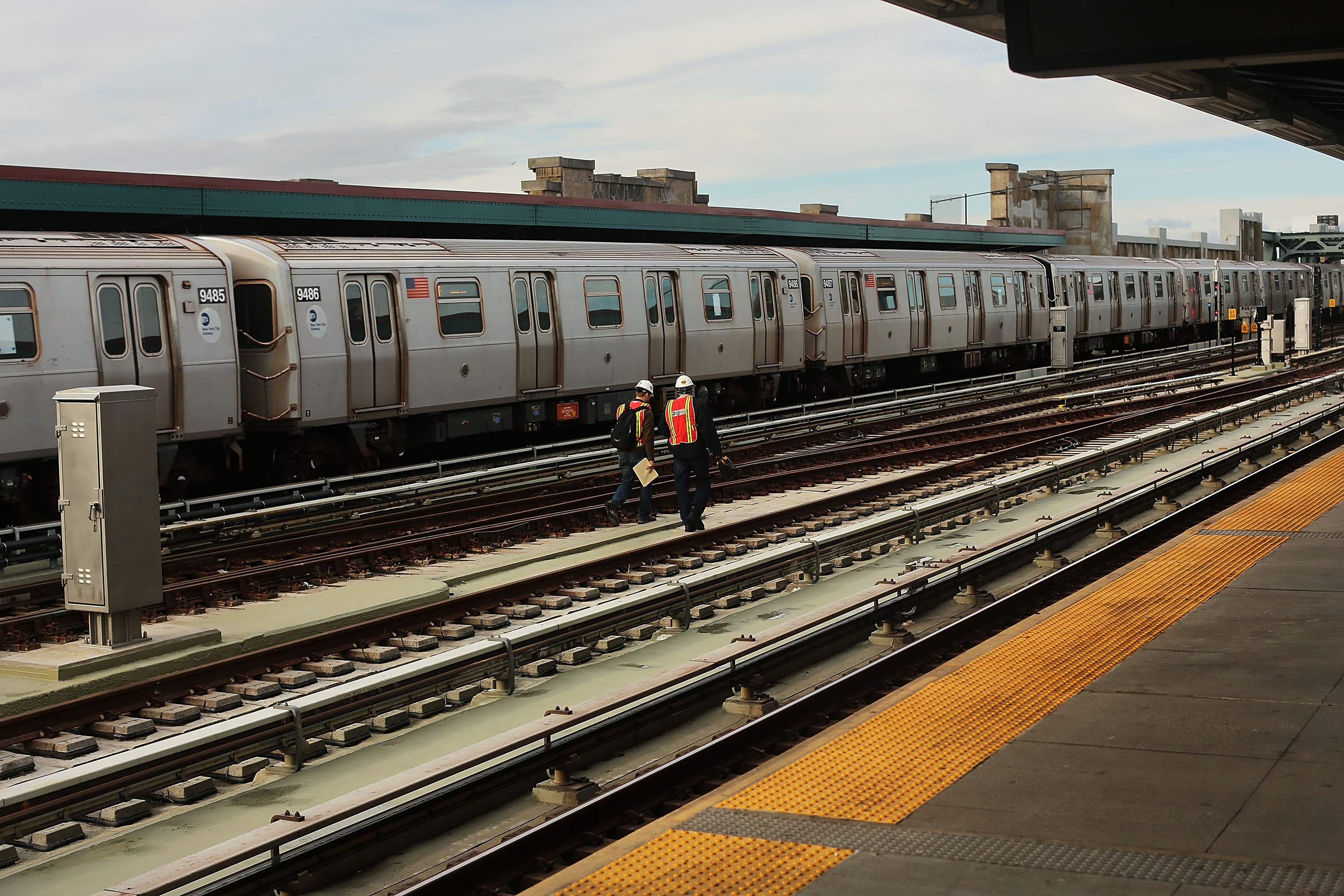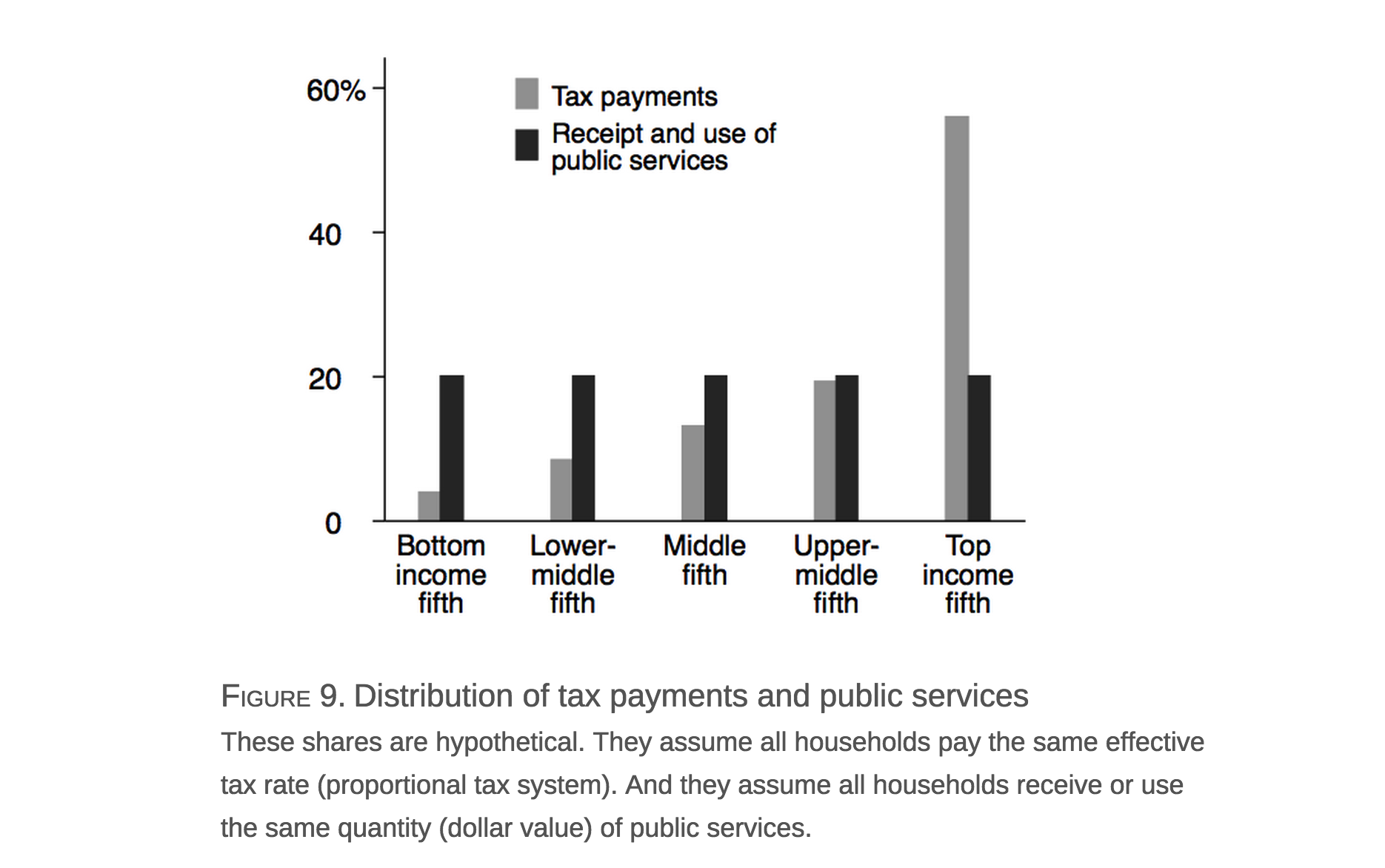Why does the U.S. have bad public transit? Blame class warfare.
A majority of Americans support infrastructure investment. But certain elites don't.


A free daily email with the biggest news stories of the day – and the best features from TheWeek.com
You are now subscribed
Your newsletter sign-up was successful
Last week, an Amtrak train traveling through Philadelphia derailed, killing eight people and injuring 200 others. Investigators are still picking through the aftermath, and several lawsuits have already landed. Among other things, it appears the train was traveling at 106 miles per hour — twice the speed limit on that stretch — when it hit the curve on which it derailed. And The New York Times reported that the Philadelphia line, along with plenty of other railways, still lacks a speed control system and other upgrades policymakers have been haggling over for years.
Which makes the tragedy another one of those moments when we wonder what became of U.S. infrastructure — and public transit specifically — and what that says about our national character.
Adam Gopnik minced no words at The New Yorker, blaming the state of affairs on a rabid anti-state ideology that sees public goods as bad, not because they don't work, but simply because they're public: "Ride a fast train to Washington today and you’ll start thinking about national health insurance tomorrow."
The Week
Escape your echo chamber. Get the facts behind the news, plus analysis from multiple perspectives.

Sign up for The Week's Free Newsletters
From our morning news briefing to a weekly Good News Newsletter, get the best of The Week delivered directly to your inbox.
From our morning news briefing to a weekly Good News Newsletter, get the best of The Week delivered directly to your inbox.
There's arguably a lot of truth to this. But his denunciation of small government ideology writ-large is a bit too sweeping. It would be more accurate to say that for a small but highly influential subset of Americans, opposition to robust public investment in transit and infrastructure is entirely rational.
First off, the ever-helpful economist Lane Kenworthy has pointed out that any spending on public services is going to be a net transfer of money down the income ladder. That's even if you assume consumption of public services is equal across economic classes. (In truth, the poor probably rely on them more, making the transfer even more generous.) Moreover, it's true even if you assume taxes are flat — i.e. everyone pays the same rate regardless of income — because the same percentage of a greater amount of income still works out to a greater dollar amount:

(Public Insurance and the Least Well-Off by Lane Kenworthy, January 2015)
So it shouldn't be surprising that a lot of polling actually shows large majorities of Americans support bulking up investment in rail, trains, metros, buses, and the like. Most voters are not nearly so individualistic and contemptuous of the commons as Gopnik suggests. But political science has made it pretty clear that, when the wealthiest Americans disagree with the rest of the country on a policy question, the rest of the country gets ignored.
A free daily email with the biggest news stories of the day – and the best features from TheWeek.com
Now as it turns out, that research also shows that support for public infrastructure spending stays high even into the top of the income ladder. The key thing to realize is that this makes the question an intra-elite fight. That Republicans champion the anti-public goods ideology can't be separated from the fact that their voters skew more wealthy and upper class than the Democrats. And in the American political system, with its unusual wealth of veto points, politically powerful but numerically small constituencies have a unique ability to stop policies dead.
That graph above should give a preliminary idea of why the GOP dislikes serious spending on public transit and other infrastructure. But it goes beyond money distribution. Public transit is especially helpful to the poor, who have a harder time affording cars, auto insurance, and maintenance. The money they don't have to spend on commuting is money they can spend on other necessities. Public transit also opens up more job opportunities by giving low-income workers access to a wider geographic area. So they're less likely to become physically isolated in urban sprawl, and their families have a better shot at moving up the income ladder.
What this all adds up to is workers who are less desperate and who have more options; which equals workers with more bargaining power; which equals more inconveniences and higher labor costs for the business owners, managers, and other professionals who make up much of the Republican base.
Which isn't to say the Right opposes public infrastructure in a deliberate effort to harm the poor. It's doubtful they're that Machiavellian. It's just that a nation with robust public transit and other goods and infrastructure is going to come along with a host of inconveniences for them well beyond more taxes, while the struggles that come with not investing in those resources are not going to fall on their doorstep.
One final caveat: The situation for the U.S. is not dire. The quality of our infrastructure has actually improved over the last few decades, though whether it's "improved" and whether it's "good" are two separate questions. And depending on how you slice the data, our spending on public infrastructure as a share of our economy appears to range between middling and below average compared to most advanced countries.
The main problem is probably just that we spend badly. Thanks to that intra-elite fight, poor communities are the ones most likely to be overlooked, while the infrastructure spending that does happen can get captured by the romanticized infatuations of the upper class. A robust national commuter and freight rail system would obviously be a good idea, as would city-to-city high speed rail. But do city interiors really need more light rail or street cars? Often, it would be much smarter to do the less glamorous thing, and bulk up spending on bus lines and the like.
As Gopnik notes, the U.S. political system is also biased towards rural interests, so we concentrate on roads in general: Richer rural or exurban communities often get quality roads, while urban interiors with greater concentrations of poor people are left to deteriorate. A lot of infrastructure spending is left to the macroeconomic perversities of state and local budgets. And then we're dealing with an austerity craze at the national level, which is mucking up things like the Highway Trust Fund.
There's also a real case here for reforming land use regulations, so we can build more densely and affordably near the public transit we already have.
The problem, in its manifestations, is a big and multi-pronged one. But the root of it is pretty simple: For a privileged group of Americans, not only is the common, cooperative resource of public transit something they don't need — it's something they'd rather not be bothered with at all. And they have the clout to make those preferences felt.
Jeff Spross was the economics and business correspondent at TheWeek.com. He was previously a reporter at ThinkProgress.
-
 Why is the Trump administration talking about ‘Western civilization’?
Why is the Trump administration talking about ‘Western civilization’?Talking Points Rubio says Europe, US bonded by religion and ancestry
-
 Quentin Deranque: a student’s death energizes the French far right
Quentin Deranque: a student’s death energizes the French far rightIN THE SPOTLIGHT Reactions to the violent killing of an ultraconservative activist offer a glimpse at the culture wars roiling France ahead of next year’s elections.
-
 Secured vs. unsecured loans: how do they differ and which is better?
Secured vs. unsecured loans: how do they differ and which is better?the explainer They are distinguished by the level of risk and the inclusion of collateral
